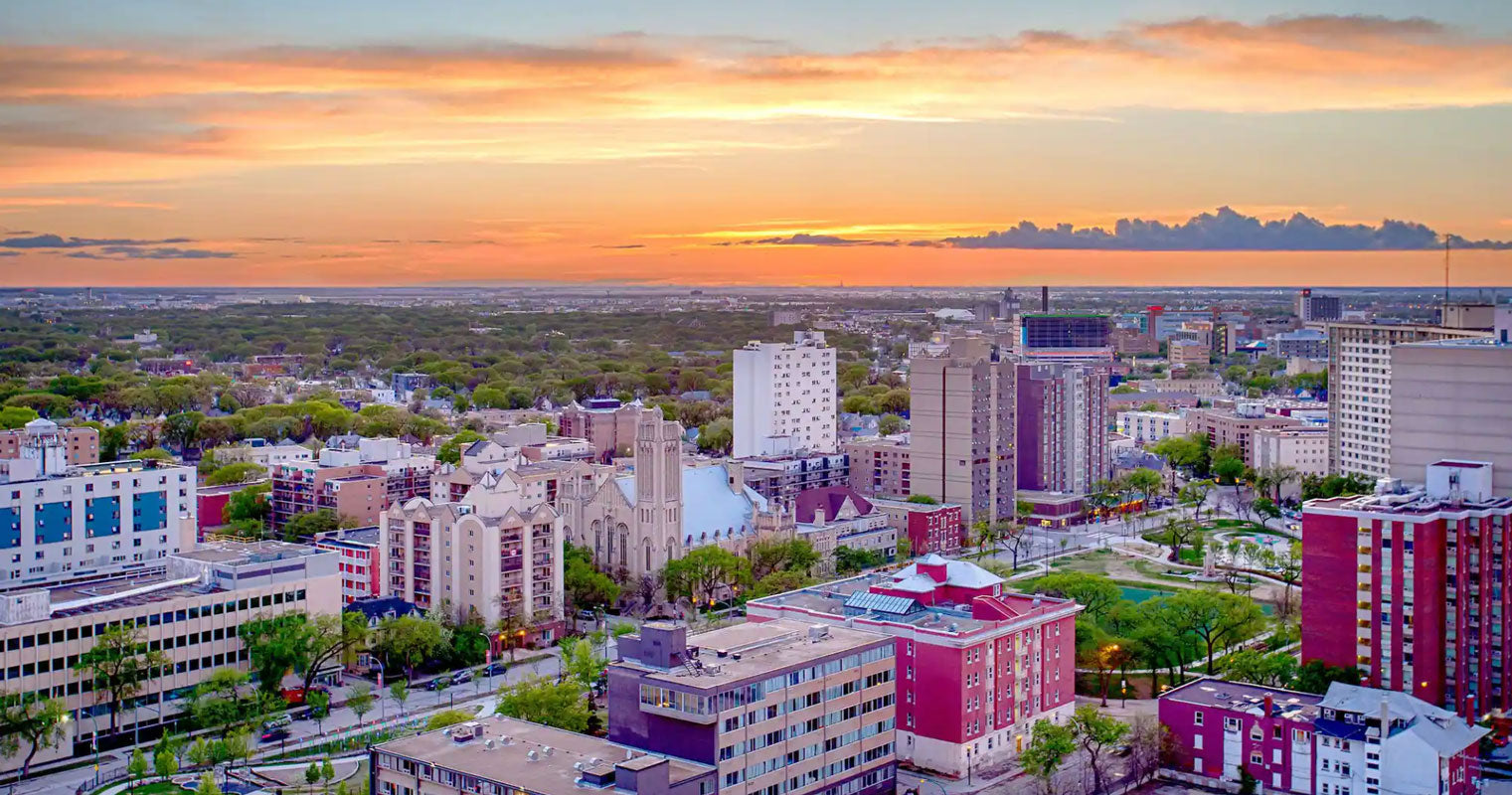Top 13 Places to Visit in Canada: Manitoba

Top 13 Places to Visit in Canada
Gimli, Manitoba
Author/Editor : Jennifer J. Lacelle
Date : August 2, 2021
To the east is Ontario, to the West is Saskatchewan, in the middle, Manitoba. Stretching into the Arctic Tundra all the way down the Hudson’s Bay and further until it reaches United States of America borders for North Dakota and Minnesota. Manitoba is glittered with lakes (+100,000) and rivers, 80 provincial parks, and homes 1.369-million people.
HISTORY
The province was the fifth to become part of the country of Canada in 1870 and its capital city, Winnipeg, is it’s largest.
Over one-fifth of the land is still forestry. The Canadian Shield covers three-fifths of the province (north and east regions), which helps to account for the rockier and water-filled terrain in the province.
What kind of animals are native to the province? Well, it’s a fairly lengthy list: caribou, arctic foxes, lynx, otters, wolves, martens, deer, moose, cougars, elk, black bears, coyotes, and polar bears and Beluga Whales along the Hudson Bay (this is about half the list). Between 1870 and 1900 the population surged with immigrants moving in, many of which were Scottish farmers, as well as German-speaking Mennonites and Icelanders.
FIRST NATIONS
The Indigenous have lived on the land for thousands of years, their history has shown there has been considerable migration throughout the continent.
Manitoba is home to the Cree, Dakota, Dene, Anishinaabe, Chipewyan, Assiniboine and Ojibwa and Oji-Cree; and Inuit (the United States refers to them as Eskimos). It is also the homeland of the Métis, who have a rather particular culture unto themselves.
Many of these groups migrated in 10,000 to 13,000 BCE. There’s also historical evidence indicating they had trade routes stemming down to the Gulf of Mexico and the Pacific Coast. Rather than agriculture, the First Nations were predominantly hunters in this region, including moose, caribou, beavers and beers. Buffalo were used for food, clothing, shelter and tools by those of the plains area.
The fur trade began picking up in the 1700s and two main European companies were formed: The Hudson’s Bay Company (1670) and then The Northwest Company (1783). They officially amalgamated in 1821. By participating in the fur trade, the Indigenous culture was forever altered, changing their territories, and social and economic patterns.
Not only that, but smallpox ran across their population in 1871. Without any immunity to the sickness, their people were decimated by nine-tenths (estimated).
GIMLI
No, not the dwarf from Tolkien’s Lord of the Rings. Rather, this is a county in Manitoba that sits on the western side of Lake Winnipeg, and is only an hour drive from the capital. It also happens to be the home of the first Icelandic settlers, who were part of the New Iceland settlement. The name does, however, come from that history. In Norse mythology,
Gimli was the place that survivors of Ragnarök (the end of the world) or worthy souls would be destined to reside after death. It is supposed to be more beautiful than the sun, and the most stunning place in Asgard. Gimli has a very proud heritage, and they actually have the largest cluster of Icelandic descendants who don’t live in Iceland.
TOURING
Just because you see one, doesn’t mean you should disturb it. These tiny elves are generally very nice, but they can be little buggers when disrespected. Summer = beach time! Because of the location, Gimli is the perfect place to soak up some rays of sun and splash in the water.
Visitors can rent any number of items to get out on the water, from kayaks to canoes, paddleboarding to powerboating, fishing or even kite boarding. Winter = ice fishing. Depending on the time of year you choose to travel, your destination here may be more welcoming on top of the water, fishing through a large hole in the ice. If you want something a touch more exhilarating, you must join the cars on their ice racetrack! Learn how to weave your way through tough winter terrain with experienced drivers and teachers.
SHOP & EAT
H.P. Tergesens & Sons was established in 1899, and is still run by the Tergesens. Fun fact, they are one of the longest running companies in the province. Don’t be fooled by the older building, the products are modern. You can find a wide assortment of interesting, different or funky products there. If you want to try a traditional Icelandic dessert, look no further. Filled with prune or apricot puree, Vinarterta is a layered cookie-cake. Sugar Me Cookie Boutique has passed the family recipe on for generations, which means you can’t get more traditional than that. If you want to try another traditional dish, Lagterta is another cake available: Icelandic Spice Cake.
FILM
The Gimli Film Festival has been running for the past 21 years and is not slowing down. Even in the wake of Covid, they turned digital with GFF On Demand, essentially it works like any other movie or television show platform online.
Filmmakers can submit their work through their website for a small fee. GFF offers their audience some of the best of Canadian and Manitoban filmmakers works, as well as from around the world. They have four indoor venues that are within walking distance to each other, and an 11-metre screen that sits along the beach.
Oh yeah, you might get to see the Northern Lights.
Gimli might be part of mythology, but this small town truly exists and has great heart offering Manitoba a great deal. This should definitely be on your checklist of places to visit.
